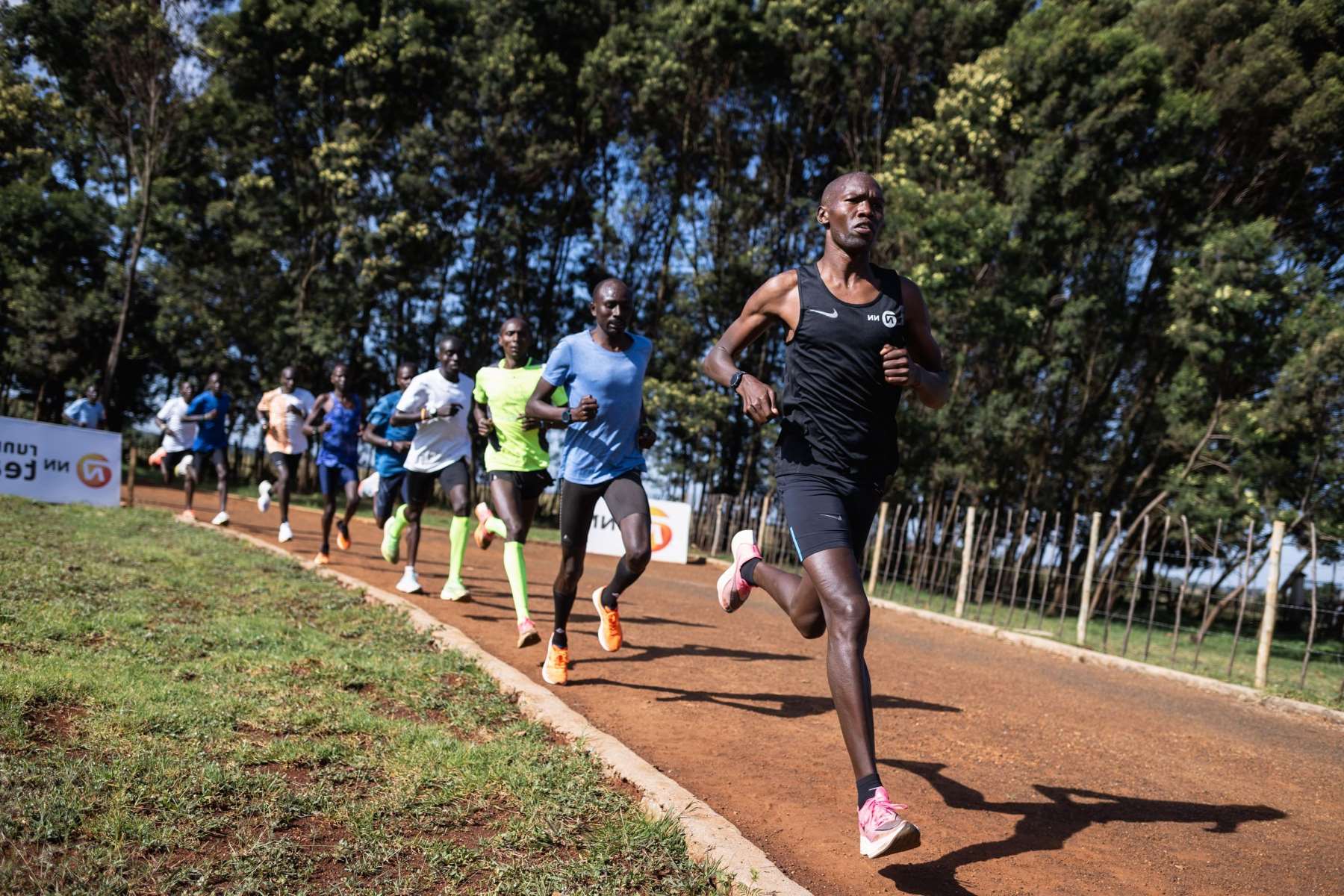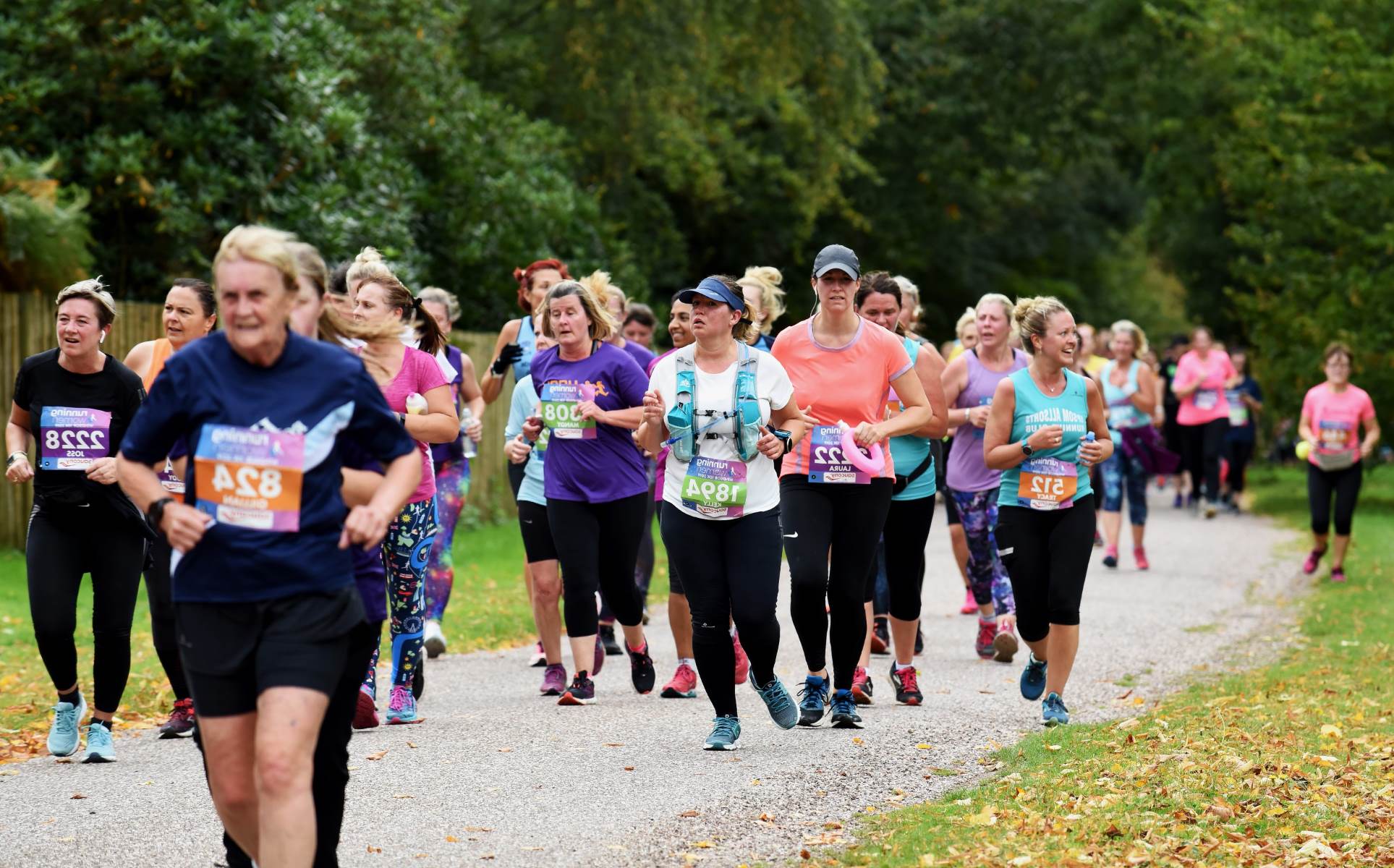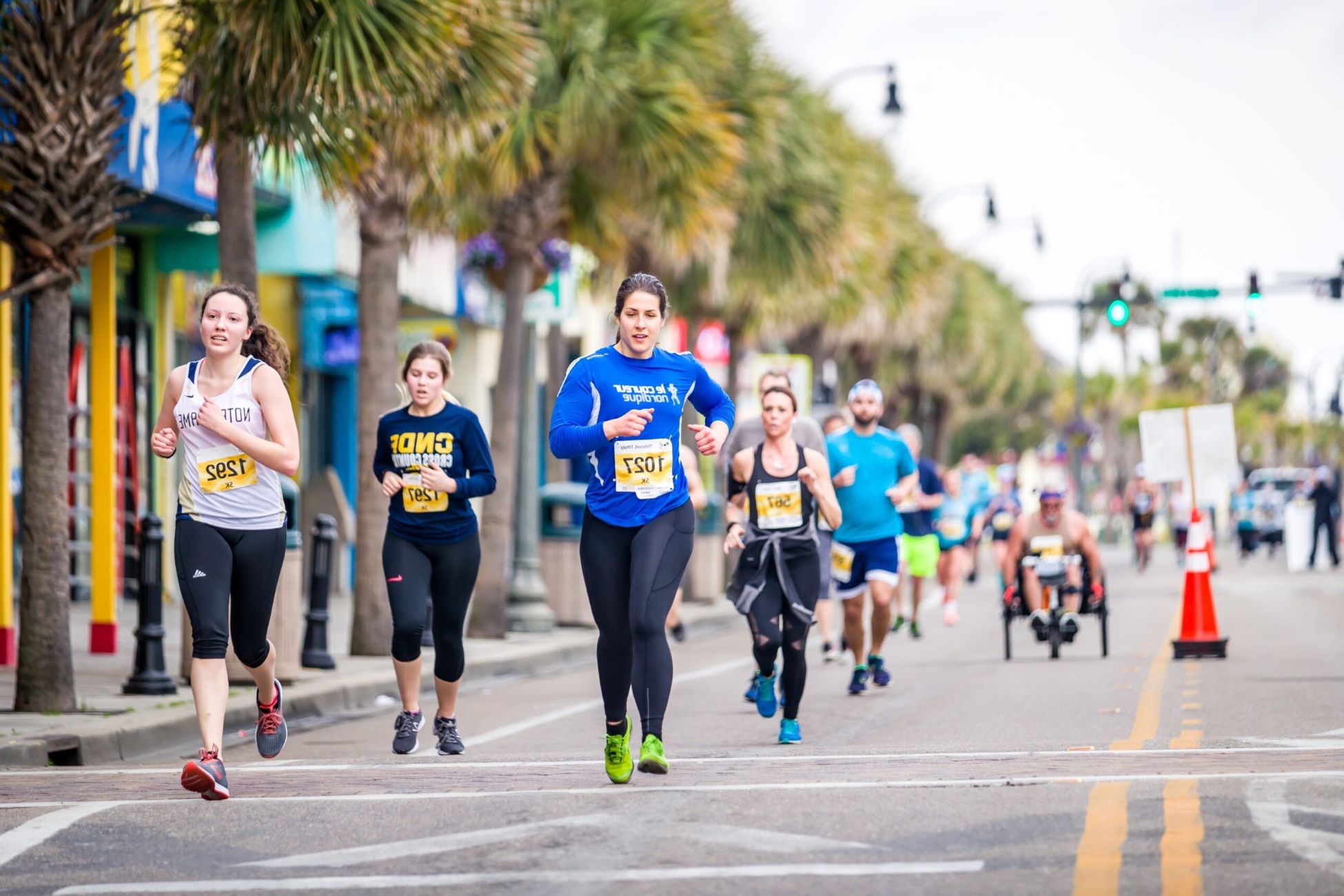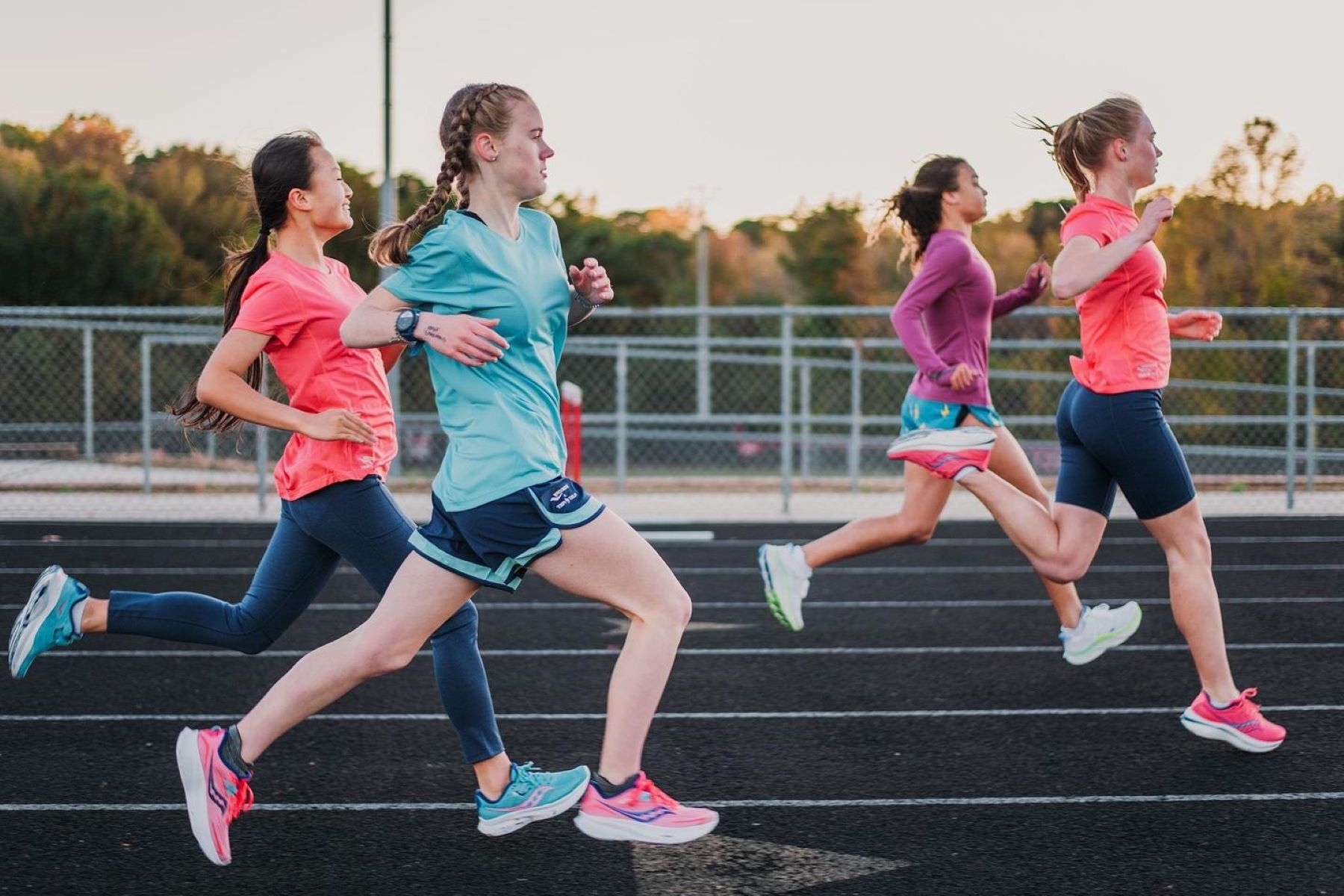Home>Races & Events>The Benefits Of Participating In 5K Races For Long Distance Training


Races & Events
The Benefits Of Participating In 5K Races For Long Distance Training
Published: February 26, 2024
Participating in 5K races offers numerous benefits for long distance training. Discover the advantages of these events for improving your race performance and overall fitness.
(Many of the links in this article redirect to a specific reviewed product. Your purchase of these products through affiliate links helps to generate commission for Therunningadvisor.com, at no extra cost. Learn more)
Table of Contents
Introduction
Participating in 5K races can be an incredibly rewarding experience for individuals engaged in long-distance training. Whether you're a seasoned marathon runner or just beginning your journey into the world of long-distance running, 5K races offer a multitude of benefits that can enhance your overall training regimen. These events, typically spanning a distance of 3.1 miles, provide an excellent opportunity to challenge yourself, gauge your progress, and connect with a community of like-minded individuals.
As you lace up your running shoes and join the bustling crowd at the starting line, the energy and excitement in the air are palpable. The collective anticipation of the impending race creates a sense of camaraderie among participants, fostering a supportive and motivating atmosphere. Whether you're aiming to achieve a personal best time or simply aiming to complete the race, the shared enthusiasm of fellow runners can be a powerful source of inspiration.
Moreover, 5K races serve as an ideal platform for honing your racing skills and testing your endurance in a competitive yet accessible setting. The relatively shorter distance compared to longer races allows you to push your limits without the same level of physical and mental strain. This makes 5K races an excellent training tool for long-distance runners, enabling them to fine-tune their pacing, breathing techniques, and mental fortitude.
In addition to the physical benefits, 5K races offer a unique opportunity to immerse yourself in the vibrant running community. Whether you're running alongside seasoned athletes, enthusiastic beginners, or supportive spectators, the sense of unity and shared passion for running is truly invigorating. The collective energy and encouragement can elevate your overall running experience, fostering a sense of belonging and motivation that extends beyond the race itself.
In the subsequent sections, we will delve deeper into the specific physical, mental, and social benefits of participating in 5K races for long-distance training. Additionally, we will explore practical tips for seamlessly incorporating 5K races into your long-distance training regimen, allowing you to maximize the advantages of these events while propelling your overall running journey to new heights.
Read more: Improve Your 5K Speed With This Workout
Physical Benefits of 5K Races for Long Distance Training
Participating in 5K races can significantly contribute to the physical development of individuals engaged in long-distance training. These events offer a range of physical benefits that can enhance overall fitness and performance, making them a valuable component of a comprehensive training regimen.
1. Cardiovascular Endurance
5K races provide an excellent opportunity to improve cardiovascular endurance, a crucial element for long-distance runners. The sustained effort required to complete a 5K race at a challenging pace helps strengthen the heart and lungs, enhancing their capacity to deliver oxygen to working muscles. By consistently participating in these races, runners can gradually increase their cardiovascular efficiency, leading to improved endurance during longer training runs and races.
2. Speed and Agility
The relatively shorter distance of a 5K race allows runners to focus on speed and agility, essential components of long-distance training. Engaging in these races enables individuals to work on their sprinting abilities, stride efficiency, and quick turnover, all of which are transferable to longer distances. The intensity of a 5K race can help runners develop a more efficient running form and improve their overall speed, contributing to enhanced performance in longer races.
3. Mental Toughness
While physical benefits are prominent, 5K races also play a significant role in building mental toughness. The mental fortitude required to sustain a challenging pace and push through discomfort during a 5K race can translate to improved resilience during long-distance training. Overcoming the mental barriers inherent in shorter, high-intensity races can bolster a runner's confidence and mental strength, preparing them to tackle the mental challenges of longer races.
4. Recovery and Adaptation
Participating in 5K races can serve as valuable training sessions that aid in recovery and adaptation. The shorter duration of these races allows for a quicker recovery period compared to longer races, enabling runners to incorporate them into their training schedule without excessive strain. Additionally, the intensity of a 5K race can stimulate physiological adaptations that contribute to overall fitness, complementing the training adaptations gained from longer, slower runs.
Incorporating 5K races into long-distance training can yield substantial physical benefits, ultimately enhancing a runner's overall performance and fitness level. By leveraging the unique advantages offered by these races, individuals can optimize their training regimen and progress toward their long-distance running goals.
Mental Benefits of 5K Races for Long Distance Training
Participating in 5K races not only yields physical benefits but also offers a myriad of mental advantages that are invaluable for long-distance training. These shorter races provide a unique platform for runners to cultivate mental resilience, enhance focus, and fortify their overall mental fortitude.
1. Mental Resilience and Endurance
The mental challenges inherent in a 5K race, such as maintaining a challenging pace, managing discomfort, and overcoming moments of fatigue, are instrumental in developing mental resilience. As runners navigate the intensity of a 5K race, they are compelled to confront and push through mental barriers, ultimately strengthening their ability to endure and persevere. This mental resilience cultivated during 5K races can significantly benefit long-distance runners, equipping them with the mental fortitude to tackle the rigors of marathon training and racing.
2. Focus and Concentration
The focused and concentrated mindset required to perform optimally in a 5K race can translate to enhanced focus during long-distance training. By honing their ability to maintain a strong and unwavering focus over the relatively shorter distance of a 5K race, runners can refine their mental acuity and concentration, attributes that are equally crucial in longer races. This heightened focus can empower runners to stay mentally engaged and resilient during the extended duration of marathon training and races.
3. Goal Setting and Achievement
Participating in 5K races provides runners with frequent opportunities to set and achieve tangible goals, fostering a sense of accomplishment and motivation. The process of setting a specific time goal or aiming to improve performance in a 5K race can instill a powerful sense of achievement upon completion. This experience of setting and attaining short-term goals can bolster a runner's confidence and motivation, creating a positive mindset that extends to their long-distance training endeavors.
4. Stress Relief and Mental Well-being
Engaging in 5K races can serve as a form of stress relief and contribute to overall mental well-being. The endorphins released during the physical exertion of a 5K race can elevate mood and alleviate stress, promoting a sense of mental clarity and rejuvenation. The sense of accomplishment and satisfaction derived from completing a 5K race can also have a positive impact on mental well-being, fostering a resilient and positive mindset that is beneficial for long-distance training.
Incorporating 5K races into long-distance training not only enhances physical fitness but also nurtures mental resilience, focus, and well-being. The mental benefits derived from these shorter races can profoundly enrich a runner's overall training experience, equipping them with the mental fortitude and positivity essential for long-distance running success.
Social Benefits of 5K Races for Long Distance Training
Participating in 5K races offers a multitude of social benefits that extend beyond the realm of physical fitness and training. These events provide a vibrant platform for runners to connect with a diverse community of like-minded individuals, fostering a sense of camaraderie, support, and shared passion for running.
1. Community Engagement and Support
5K races serve as a gathering point for individuals from various backgrounds and fitness levels, creating an inclusive and welcoming environment. Whether you're a seasoned long-distance runner or a novice enthusiast, these events offer an opportunity to engage with a supportive community of fellow runners. The collective energy and encouragement present at 5K races can be incredibly motivating, fostering a sense of belonging and camaraderie that transcends individual performance.
2. Networking and Social Interaction
Beyond the race itself, 5K events provide a conducive setting for networking and social interaction. Runners have the opportunity to connect with others who share their passion for running, exchange training tips, and build meaningful connections. Whether it's striking up a conversation at the starting line, sharing post-race experiences, or celebrating achievements together, 5K races facilitate valuable social interactions that can enrich a runner's overall experience and expand their network within the running community.
3. Family and Community Involvement
5K races often attract a diverse audience, including families, friends, and local community members. These events offer a unique opportunity for individuals to involve their loved ones in their running journey. Whether it's cheering from the sidelines, volunteering at the event, or participating in the race together, 5K races can strengthen familial bonds and promote a sense of community involvement. The inclusive nature of these races encourages individuals to share their passion for running with those closest to them, fostering a supportive and inclusive running culture.
4. Philanthropy and Social Causes
Many 5K races are organized to support charitable causes, providing participants with an avenue to contribute to meaningful social initiatives. By taking part in these events, runners can align their passion for running with philanthropy, raising awareness and funds for various charitable organizations. This aspect of 5K races adds a deeper layer of social significance, allowing participants to make a positive impact within their community while pursuing their fitness and training goals.
In essence, 5K races offer a rich tapestry of social benefits that extend far beyond the physical act of running. These events foster a sense of community, support, and social engagement, enriching the overall running experience and reinforcing the inclusive and uplifting nature of the running community.
Tips for Incorporating 5K Races into Long Distance Training
Incorporating 5K races into long-distance training can be a strategic and rewarding approach to enhancing overall performance and fitness. Here are some valuable tips to seamlessly integrate 5K races into your long-distance training regimen:
-
Strategic Scheduling: When incorporating 5K races into long-distance training, strategically schedule them as part of your training plan. Identify 5K races that align with your long-distance training schedule, allowing them to serve as valuable training sessions or performance assessments. Integrate these races at strategic intervals to gauge progress and track improvements in speed and endurance.
-
Pacing Practice: Use 5K races as an opportunity to practice pacing strategies that are transferable to longer distances. Experiment with different pacing techniques during 5K races, such as negative splits or even pacing, to refine your ability to maintain a consistent and sustainable pace. This practice can enhance your pacing acumen for longer races, contributing to improved overall performance.
-
Recovery and Adaptation: Leverage 5K races as part of your training regimen to facilitate recovery and physiological adaptation. The relatively shorter duration of these races allows for quicker recovery compared to longer races, making them an ideal addition to your training schedule. By strategically incorporating 5K races, you can stimulate adaptations that complement the training effects of longer, slower runs.
-
Mental Conditioning: Utilize 5K races to bolster mental toughness and resilience. Approach these races with a mindset focused on mental conditioning, using them as opportunities to confront and overcome mental barriers. Embrace the discomfort and intensity of a 5K race as a means to fortify your mental fortitude, preparing you to tackle the mental challenges inherent in long-distance training and racing.
-
Performance Assessment: View 5K races as valuable opportunities to assess your performance and track your progress. Treat these races as benchmarks to evaluate your speed, endurance, and overall race-day strategies. Analyze your performance in 5K races to identify areas for improvement and refine your long-distance training approach accordingly.
By implementing these tips, you can effectively integrate 5K races into your long-distance training regimen, leveraging their unique benefits to optimize your overall performance and progress as a long-distance runner.
Read more: Expert Tips For Running A Sub 20 5k
Conclusion
In conclusion, participating in 5K races presents a myriad of benefits for individuals engaged in long-distance training. These events not only offer physical advantages such as cardiovascular endurance, speed and agility development, but also contribute significantly to mental resilience, focus, and overall well-being. Furthermore, the social aspects of 5K races foster a sense of community, support, and inclusivity within the running culture, enriching the overall running experience.
By seamlessly incorporating 5K races into long-distance training regimens, runners can strategically leverage these events to enhance their performance and fitness. The strategic scheduling of 5K races as part of training plans allows runners to track progress and refine their pacing strategies. Additionally, the mental conditioning and performance assessment opportunities provided by 5K races contribute to the holistic development of long-distance runners.
The inclusive and supportive nature of 5K races extends beyond individual performance, creating a platform for community engagement, networking, and involvement in philanthropic endeavors. These social benefits not only enrich the running experience but also contribute to the broader impact of running events within local communities.
In essence, 5K races serve as a multifaceted tool for long-distance runners, offering a balance of physical, mental, and social advantages. By embracing the unique benefits of 5K races and integrating them strategically into long-distance training, runners can elevate their overall performance, foster mental resilience, and actively contribute to the vibrant and inclusive running community.
Ultimately, the incorporation of 5K races into long-distance training represents a holistic approach to running, encompassing physical fitness, mental fortitude, and community engagement. As runners lace up their shoes and embrace the energy of 5K races, they embark on a journey that transcends individual achievement, fostering a sense of unity, support, and personal growth within the dynamic tapestry of the running community.












